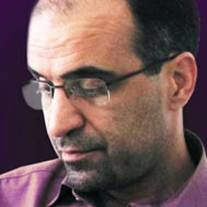Not as Weak as They Pretend
How the Pakistani government has manipulated foreign countries to stay on power. By Bahram Golzadeh.

Developments of the last one and a half years in Pakistan and the challenges threatening the governments of Pervez Musharraf and Asif Ali Zardari, such as the Red Mosque battle between the army and extremist paramilitary which left behind heavy toll, the return of exiled leaders of Pakistan’s People Party and Muslim League (Nawaz) and the opening of political atmosphere despite Musharraf’s will, have placed the country in a predicament, picturing a vague future.
Following these developments came the assassination of Benazir Bhutto on the threshold of elections, Musharraf’s retirement from power and army leadership, Islamic extremists’ reactivation etc. have all tempted experts to provide an analysis of the current situation in and the future of this sub-continental country.
The incumbent president of Pakistan, Asif Ali Zardari, Benazir Bhutto’s widower, came to power after a struggle with the main opponent, Muslim League led by Nawaz Sharif. The shaky position of the government due to various challenges, including Musharraf’s latent activities, unrests stirred by opponents and a reality called the Pakistani Taliban, United States distrust of the new government of a nuclear state, developments in Afghanistan and other parts of the region, potential threats pointed towards Pakistan from some of its neighbors etc. all gave enough material to political pundits to present their analyses.
However, I believe that some behaviors and policies of Zardari’s government have been overlooked by political and regional analysts. Despite some analyses, Zardari’s government has achieved its primary goals:
1. Zardari has untangled the government from crisis, political turmoil, domestic and international mistrust on their ability to control nuclear Pakistan;
2. his government has minimized the pressure from political rivals, Pakistani Taliban and its extremist allies, and has marginalized them, curbing their influence on the political process;
3. Zardari and his team have calculatively encountered the Pakistani Taliban and used new tactics to control this apparently powerful group by handing them the Swat valley in the Afghanistan border;
4. they have absorbed financial aid from the international community for fighting terrorism and Taliban, and also have managed to gain political support of world powers;
5. by exaggerating Taliban’s threat, applying an active diplomacy with effective measures they have forced Washington to lend them support;
6. They have carried out military operation against Taliban partly funded by foreign countries.
I believe that by implementing new policies, the Pakistani government has largely attained its intended goals and has managed to stabilize its political position, disarm its political rivals and corner them at least for medium-term, without paying the price all by itself. On the other hand, it has given Taliban serious blows and constrained the extremists, while receiving huge financial aids from other countries. Finally, by foregrounding its role in establishing stability in Pakistan and insisting on the necessity of receiving support from other countries, this government has escaped a fall. These are achievements seemingly ignored by most analysts.
Following these developments came the assassination of Benazir Bhutto on the threshold of elections, Musharraf’s retirement from power and army leadership, Islamic extremists’ reactivation etc. have all tempted experts to provide an analysis of the current situation in and the future of this sub-continental country.
The incumbent president of Pakistan, Asif Ali Zardari, Benazir Bhutto’s widower, came to power after a struggle with the main opponent, Muslim League led by Nawaz Sharif. The shaky position of the government due to various challenges, including Musharraf’s latent activities, unrests stirred by opponents and a reality called the Pakistani Taliban, United States distrust of the new government of a nuclear state, developments in Afghanistan and other parts of the region, potential threats pointed towards Pakistan from some of its neighbors etc. all gave enough material to political pundits to present their analyses.
However, I believe that some behaviors and policies of Zardari’s government have been overlooked by political and regional analysts. Despite some analyses, Zardari’s government has achieved its primary goals:
1. Zardari has untangled the government from crisis, political turmoil, domestic and international mistrust on their ability to control nuclear Pakistan;
2. his government has minimized the pressure from political rivals, Pakistani Taliban and its extremist allies, and has marginalized them, curbing their influence on the political process;
3. Zardari and his team have calculatively encountered the Pakistani Taliban and used new tactics to control this apparently powerful group by handing them the Swat valley in the Afghanistan border;
4. they have absorbed financial aid from the international community for fighting terrorism and Taliban, and also have managed to gain political support of world powers;
5. by exaggerating Taliban’s threat, applying an active diplomacy with effective measures they have forced Washington to lend them support;
6. They have carried out military operation against Taliban partly funded by foreign countries.
I believe that by implementing new policies, the Pakistani government has largely attained its intended goals and has managed to stabilize its political position, disarm its political rivals and corner them at least for medium-term, without paying the price all by itself. On the other hand, it has given Taliban serious blows and constrained the extremists, while receiving huge financial aids from other countries. Finally, by foregrounding its role in establishing stability in Pakistan and insisting on the necessity of receiving support from other countries, this government has escaped a fall. These are achievements seemingly ignored by most analysts.

